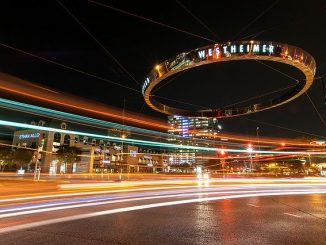
Here’s an amazing admission from Rad Sallee in today’s Move It! column:
Metro and Harris County are planning commuter rail, and outlying counties are interested, but now it’s the inner city’s turn. It voted for rail. Affluent suburbs generally voted against it. Years earlier, some of the same suburbs also voted not to be part of Metro. Some didn’t want its 1-cent sales tax. Some just didn’t want transit and what it might bring. Metro cannot legally extend service outside its taxing jurisdiction, except by contract.
So there you go. METRO won’t provide transit services to the outer ‘burbs because those folks didn’t vote for light rail. Oh sure, there are several (overcrowded) Park and Pillages, and a few token bus routes, but by and large, METRO will continue to collect tax revenues from the outer loop residents, and as punishment, will make sure the inner loop gets the lion’s share of the pie. It’s nice to see Sallee confirm what many of us have suspected.
I’d rather see my tax money go to Harris County to pay for the upkeep and expansion of the roads we use, many miles from any METRO transit offerings.
KEVIN WHITED ADDS: There was another amazing admission in the column:
Transit service does not pay for itself and is not expected to. Its core mission is to serve low-income areas, where a high percentage of residents depend on it. Metro needs some improvement on that score, and distributing the planned rail lines around the city is a start.
He was doing such good work, until he got to the last part. Unfortunately for low-income residents, they’ve mainly seen their bus service reduced (despite the promise of a big increase in the referendum) and the routes adjusted to feed the existing light rail line to nowhere.
METRO in recent years (without much adult supervision from the mayor, we would add) has acted much more like a development agency for affluent types who desire a world-class city than it does a transit organization whose primary mission is to move people who can’t afford cars.
And here’s an interesting admission in another Rad Sallee piece (on plans for rail in the East End):
The Metropolitan Transit Authority has loyal supporters in Houston’s East End, whose voters approved Metro’s transit plan in 2003 by a 14 percent margin.
Voters in the East End and other lower-income areas certainly helped push the 2003 referendum to its narrow victory. They almost certainly were persuaded both by rail and by promises of a 50% increase in bus service. The promised bus service hasn’t actually panned out, and the rail service remains a work in progress (although the folks in the Gulfton area in southwest Houston are probably wondering why there aren’t more rail stations for them in METRO’s grand plans).
BLOGVERSATION: Lose an Eye, It’s a Sport.
(Old) Forum Comments (10)



